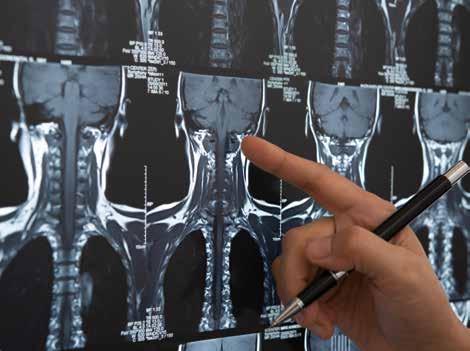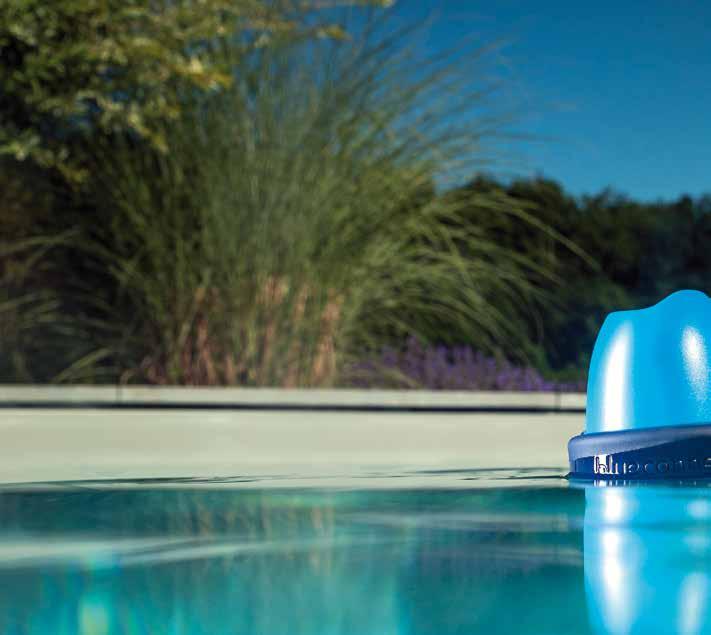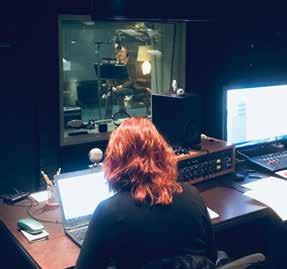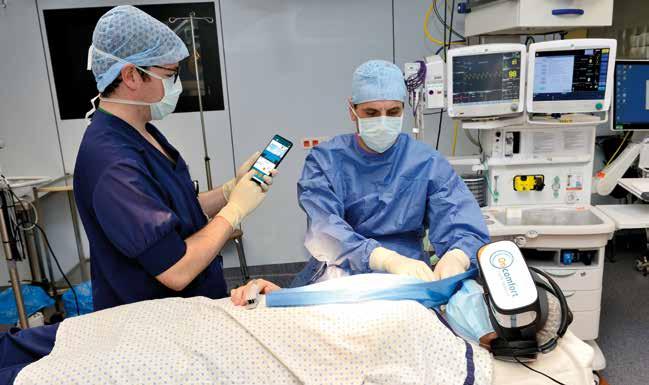
10 minute read
French biotech firm Op2Lysis
Vital signs French biotech company Op2Lysis to expand stroke treatment development in Liège
By Nick Amies
Advertisement
Vital work in the future prevention and treatment of cerebrovascular accidents or CVAs – commonly known as strokes – could soon be undertaken in Wallonia. French biotech company Op2Lysis announced plans at the end of 2020 to launch research and development activities in the Liège region within the next six to 12 months.
Strokes remain the second most common cause of death and the predominant cause of disability worldwide. About 20% of all strokes are haemorrhagic, caused by a blood vessel in the brain rupturing and resulting in bleeding either within the brain or between the brain and the skull. In 75% of haemorrhagic stroke cases, the most severe form of CVA, the victim dies or becomes severely disabled.
To date, no treatment exists that can eliminate the bleeding in haemorrhagic stroke cases, and surgery has shown no benefit, which is why company founders Christophe Gaudin and Jérôme Parcq created Op2lysis in 2016. The French biotechnology start-up, whose main research facility is in the Normandy city of Caen, is currently developing the first drug treatment for haemorrhagic stroke. It intends to expand its activities into Wallonia to connect with other companies and increase its chances of success. Op2Lysis has already subcontracted certain activities to companies in Liège. “Regarding our plans in Wallonia, we will settle down in the Liège area to establish our development activities and extend our team and resources to prepare for the clinical phase,” said CEO Gaudin. “The research activity will remain in France, which allows us to be closely linked with the INSERM public research unit where the treatment was originally developed. We will, in this way, optimise our progress by benefitting from the two ecosystems in both countries and regions.”
Op2Lysis recently announced that it had raised more than €1 million to help move O2L-001, the drug treatment it is developing, closer to the clinical phase. The funding was raised in association with Noshaq, a Liège-based investment company, and BeAngels, a Belgian start-up support organisation.
Op2Lysis is already preparing an ‘A-series’ first venture capital fund-raising campaign to carry out the actual clinical trials that will establish the efficacy, safety and clinical benefits of O2L-001, a thrombolytic which liquefies the intracerebral haematoma efficiently and safely. The company hopes to be able to launch clinical trials within 18 months.
op2lysis.com
Global players
From swimming pools and wine dispensers to sports and voice technology, Wallonia’s digital pioneers are at home abroad

By Ian Mundell
• Blue Connect by Riiot Labs
Some of Wallonia’s digital companies are born global, while others have made a conscious decision to move onto the world stage. For those who make the leap, new horizons open up, with greatly expanded possibilities for growth and development.
Thinking of taking a business abroad can involve a major step outside a company’s comfort zone. “Sometimes our companies, and in particular our start-ups, don’t have enough self-confidence,” says Guy Vanpaesschen, digital and media expert at the Wallonia Export-Investment Agency (AWEX). “They are unsure what they can demonstrate at a trade show in Shenzhen or Las Vegas, they think it isn’t interesting, but they should trust in their products or services.”
It is AWEX’s job to support them. “We try to offer them a toolkit that will help them succeed in the market abroad.” This can mean coaching them in how best to pitch their products and services to potential international partners, or offering more tangible aid. “We also have financial incentives to help them establish themselves in a market, for example to set up an office in the US, in Canada or in China.”
Specifically for digital companies, the agency works with partners in the region on Digital Wallonia International. Vanpaesschen: “The goal of this project is to expand exports by developing more trade shows, and by developing the Digital Wallonia Hub network.”
This network comprises contact points in the 10 most interesting digital ecosystems around the world, from San Francisco to Shenzhen, from Tel Aviv to Singapore. “These hubs are there to help our companies get into the local markets, a door they can pass through,” Vanpaesschen explains.
The move into export can be particularly daunting for companies making consumer products, or serving markets where the

• Invineo

consumer is just a step away. Trade shows such as the CES (formerly the Consumer Electronics Show) in Las Vegas offer them a chance to test the market and find important media coverage. a list of 40-60 wines, varying according to market, season and consumer patterns. Attending CES announced the company to the large American market and attracted the interest of a number of potential investors.
Invineo, from Andenne, made the journey in Another company conceived in Wallonia • IntoPIX 2020 with its smart wine dispenser, designed that made its mark at CES is Linedock, for restaurants, bars and hotels. This can which has developed docking stations for serve several wines at the same time, keep- Apple laptops. These sleek units sit under ing each at the ideal temperature, elegantly the laptop, providing additional battery serving pre-defined measures to bar staff or power and all the ports and connections you price lists and spec sheets to bring Linedock directly to customers. “It might look like a could possibly want. to their local markets.” They also met all the simple product, but in fact it’s a connected big players for the first time. object, with a lot of advanced technology Co-founders Nancy De Fays and Quentin inside,” says Vanpaesschen. Malgaud first attended CES in 2019 as com- The young entrepreneurs returned to CES plete neophytes. “We knew no one and very in 2020 with new products and more experiThe device collects data on the wine con- few people knew about Linedock,” says ence. They met with more contacts, includsumed and makes sure that stocks are main- Malgaud. “But distributors from all around ing people who had backed the company tained. Meanwhile the company curates the world came to our booth and requested with crowdfunding, and talked to the press. Sometimes companies, in particular start-ups, “ don’t have enough self-confidence
Along the way they picked up two Best in Show awards from influential online media covering the event.

CES also helped Riiot Labs, which attended the show in 2017 and was nominated for one of the event’s innovation awards for its Blue swimming pool monitoring system. A sensor collects data on the water quality, telling owners or maintenance companies the temperature, acidity, saltiness and chlorine levels. This information is delivered directly to an app, letting them know when something needs to be done to keep the pool in top condition.
Later that year, following an appearance at the Piscine Global trade fair in Lyon, Riiot Labs was taken over by the Spanish pool company Fluidra. Its Blue system has subsequently been sold across Europe, in Australia and the US. A dedicated research and development unit continues to operate in Liège.
In some sectors of the economy, a company can only exist if it is present on the global stage. This is the case for broadcast technology, where Wallonia has a number of highly successful companies. These include EVS Group, headquartered in Seraing, which specialises in live video technology, such as slow-motion and instant replay for sports broadcasting. It also makes a video assistant referee system that has been adopted by football leagues in Spain, Brazil, Korea and Denmark, and is used around the world in other sports such as rugby and basketball.
Then there is IntoPIX of Mont-Saint-Guibert, which provides video processing and image compression technology to the broadcast and cinema industries. “In the broadcast sector IntoPIX is widely recognised for its technology, but it has a much lower profile in Wallonia,” says Vanpaesschen. “Like a number of companies, it had to go abroad to win recognition.”
Another sector that naturally looks abroad is health, and Wallonia’s thriving biomedical sector has nurtured a number of innovative e-health companies. Oncomfort, based in Wavre, has developed a virtual reality method for relieving patients’ pain and anxiety before, during and after medical procedures. This is done by a combination of hypnotherapeutic scripts and immersive sounds that play though a virtual reality headset, dissociating patients from their pain and anxiety.
The method was launched in the Benelux and France in 2019. Since then some 30,000 patients have used it, for procedures in oncology, cardiology, radiology and paedi-

• Acapela

atrics (it can be used by children as young as six). It is also designed to be international, with sessions already available in 12 languages.
Oncomfort’s international career sped up during 2020, with a funding round that brought in €10 million in new investment, followed by a distribution deal with medical equipment company Vygon. This will see the product widely distributed in France, the UK, Ireland, Spain, Portugal and Italy during 2021.
“We are at a tipping point in our digital therapy,” said chief executive Mario Huyghe, after the investment round was announced. “With this funding, we will accelerate our product development with a broader engineering team and invest in international expansion.”
A digital health company with applications outside the clinic is Phasya, a spin-off from the University of Liège that specialises in detecting an individual’s physiological and cognitive state. This can be applied in products that check car drivers and airline pilots for drowsiness, or that monitor the fitness of workers operating heavy machinery.
At the beginning of 2019 Phasya raised €1 million to expand its business, and in the summer of the same year won a vote of confidence from the European Association of Automotive Suppliers, which gave it an innovation award. While the pandemic has slowed down research and development, its international plans got a boost recently with an invitation to return to the Plug and Play Japan accelerator programme in 2021.
Artificial intelligence (AI) will certainly inform Phasya’s future development, and is already driving some of the region’s most internationally focused digital companies. It is the core business of Aerospacelab, based in Mont-Saint-Guibert, which raised €11 million during 2019 to develop a constellation of Earth observation satellites and the AI systems to turn their data into commercial applications.
Meanwhile, the Acapela Group has started to employ AI in its business designing dig-

• Acapela
• Oncomfort
Distributors from all around the world came to “ our booth
ital voices, for example for public address systems or devices that need to speak. This business is already international, including voices in more than 30 languages and increasingly reflecting the regional and ethnic diversity in each market.
AI has been particularly useful in My-ownvoice, the company’s online service that offers individuals diagnosed with speech or language disorders the possibility to create their own digital voice. The digital voice retains the timbre, accent and intonation that makes up their vocal identity, allowing them to keep speaking as themselves as their natural voice deteriorates. Initially launched in 2015, the use of AI in the latest version means that only 50 sentences of someone’s voice are needed to create a digital version, rather than 350 sentences previously. This dramatically decreases the burden for people who may already have trouble speaking or concentrating for long periods of time.
Another example is EVS, which has built AI into its video referee system. This automatically calibrates the field of play in football matches and produces a virtual offside line in real-time. Its system was recently accredited by Fifa, football’s governing body. AI is also high on the agenda of the Wallonia Export-Investment Agency. “We want to encourage the artificial intelligence sector to go abroad after the pandemic is over,” says Vanpaesschen, “so we are explaining to them what happens in other ecosystems abroad, and where they might fit in.”
This means approaching markets such as the US and China that are investing immense amounts in AI. “That makes it harder, but there are opportunities, for example by developing projects together, by combining the strengths of our companies with theirs.”









